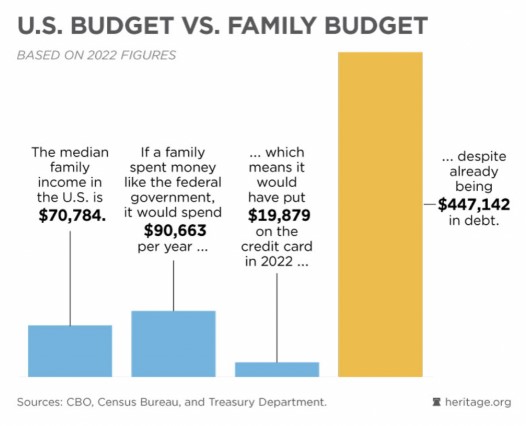After nearly 100 days of refusing to negotiate, Biden finally sat down to talk business with Speaker McCarthy. McCarthy went into the talks with a strong hand as House Republicans had passed the Limit, Save, Grow Act to make significant spending cuts in exchange for a raise in the debt ceiling. Biden and the Democrats had nothing—they hadn’t even tried to put together a policy plan.
Realistically, conservatives knew concessions would be made, but unfortunately, the product of the negotiations was worse than imagined. Republicans got some—but very little—of what they asked for.
This agreement suspends the debt ceiling until 2025. It is expected to cause deficit spending of $1.571 trillion for fiscal year 2023, and a total of $20.3 trillion over the next 10 years. Yet the McCarthy-Biden deal includes only a $12 billion reduction in spending for FY 2024 with only $1.3 trillion in alleged cuts over the next 10 years which represents only 1.7% of total spending.
Let’s put this in perspective.The median family income in America is $70,784. If that family spent like the federal government, they would spend:
- $19,879 more than what they earned in 2024.
- $276,000 more than what they earned over the next 10 years.
Congress titled this bill the “Fiscal Responsibility Act.” And only Congress could think this level of deficit spending is “fiscal responsibility.”



